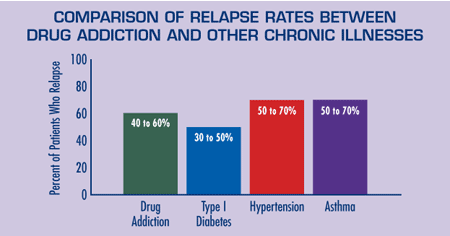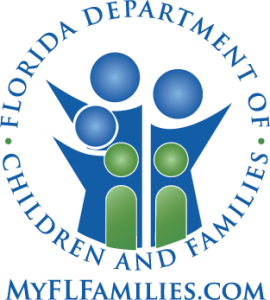Summary: Does drug treatment work? Can substance use disorders be successfully treated? Read what the National Institute on Drug Abuse has to say on treatment, addiction, and relapse.
Addiction is a chronic disease that can be successfully treated. We need to look no further than the millions of Americans who are in long-term recovery today from drug and alcohol addiction to see that recovery is possible. Still, there remains some cynicism about the efficacy of drug treatment, and some people claim that the chances of treatment succeeding are very low. In actual fact, relapse rates for drug-addicted patients are about the same for other chronic illnesses.
According to the National Institutes of Health:
“Does relapse to drug abuse mean treatment has failed?
No. The chronic nature of the disease means that relapsing to drug abuse is not only possible, but likely. Relapse rates (i.e., how often symptoms occur) for drug addiction are similar to those for other well-characterized chronic medical illnesses such as diabetes, hypertension, and asthma27, which also have both physiological and behavioral components. Treatment of chronic diseases involves changing deeply imbedded behaviors, and relapse does not mean treatment failure. For the addicted patient, lapses back to drug abuse indicate that treatment needs to be reinstated or adjusted, or that alternate treatment is needed.

Source: JAMA, 284:1689-1695, 2000
Relapse rates for drug-addicted patients are compared with those suffering from diabetes, hypertension, and asthma. Relapse is common and similar across these illnesses (as is adherence to medication). Thus, drug addiction should be treated like any other chronic illness, with relapse serving as a trigger for renewed intervention.27
As well access to care for substance use disorders is limited. In 2014, 22.5 million people in the U.S. needed treatment for an illicit drug or alcohol use problems but only 18 percent received any treatment, far below treatment receipt rates for those with hypertension (77 percent), diabetes (73 percent), or major depression (71 percent).





